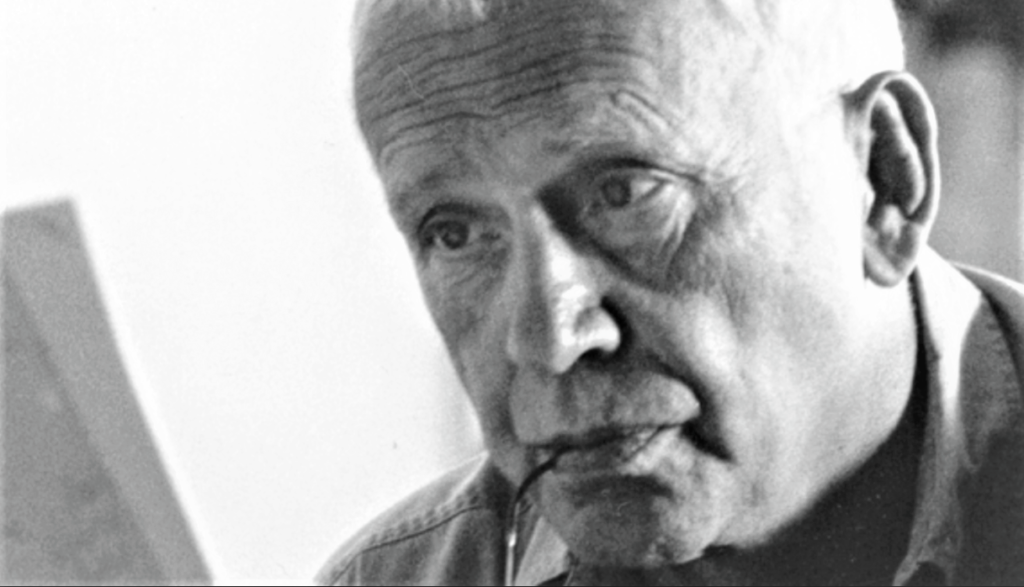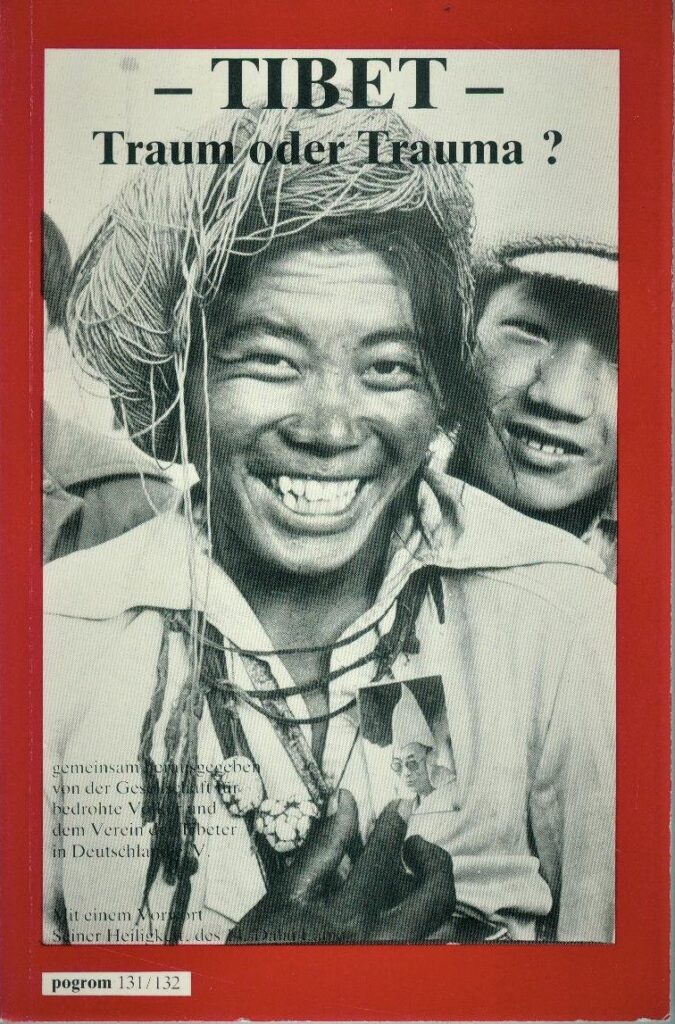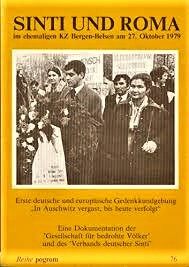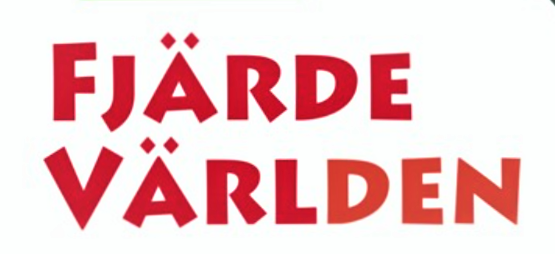
GfbV (Gesellshaft für Bedrohte Völker) honors Zülch as visionary and tireless advocate for persecuted people around the world
”On March 17, our founder and father of the organization, friend and long-time initiator of our human rights campaigns, Tilman Zülch, died in Göttingen at the age of 83. We are deeply saddened by this loss. Our thoughts are with his family and friends all over the world,” says Burkhard Gauly, Federal Chairman of the Society for Threatened Peoples, on behalf of the Board and the Secretariat.
Tilman Zülch was a visionary in human rights work. His view of the fate of persecuted ethnic and religious minorities and indigenous peoples, his selfless commitment to the fight against genocide and displacement are examples of international human rights work today. The last decades have shown that minorities, stateless peoples and indigenous peoples are often exposed to persecution and threats, even annihilation, without any protection. One of Tilman Zülch’s basic convictions was that they needed an international lobby that would vehemently stand up for them. Born in Deutsch-Liebau, expelled with his family, and shaped by the experiences of National Socialism and the post-war period, it was clear to him that knowledge of the Shoah obliges us to take responsibility for the prevention of genocide and violence today. As a Society for Threatened Peoples, we will follow these principles and Tilman Zülch’s attitude of looking at people, feeling empathy and selflessly helping people in need in our daily work for persecuted people around the world.

Together with Klaus Guercke, Tilman Zülch founded the ”Action Biafra-Hilfe” in 1968, which became the GfbV. The organization fought for the ten million members of the Igbo people, who were subjected to a starvation blockade by the Nigerian government with military support from the Soviet Union and Great Britain. With the Church Airlift, Zülch flew into the Biafra Basin and witnessed the starvation that killed two million people. In October 1968, Günter Grass gave a well-received speech at the first major Biafra demonstration in Hamburg. Personalities such as Ernst Bloch, Heinrich Böll, Paul Celan, Helmut Gollwitzer, Erich Kästner, Siegfried Lenz and Carl Zuckmayer supported the actions of Biafra-Hilfe. In the decades that followed, Zülch was able to inspire and bind many people to the GfbV: prominent personalities, minority representatives, club members and more than 30,000 supporters.

With Tilman Zülch at the helm, the GfbV has always swum against the tide, not least by standing up for ethnic groups ”about which no one speaks,” as the title of one of Zülch’s books puts it. Since 1970, the GfbV has continuously supported Kurds, Yazidis or Assyrian/Aramaic/Chaldean Christians in the Middle East. The GfbV exposed the involvement of German companies in the development of the poison gas industry and a fleet of attack helicopters in Iraq, which killed 5,000 people in the Kurdish city of Halabja. In 1977/78, the first major tour of Europe was organized for indigenous delegates from 16 countries in North and South America – with an overwhelming public response.

From 1979 to 1981, the GfbV publicized the hitherto taboo subject of the Holocaust of the Sinti and Roma. The volume ”Vergessen in Auschwitz, verfolgt bis heute” (with a foreword by the recently deceased philosopher Ernst Tugendhat), published by Zülch in 1979, a funeral march to the Bergen-Belsen concentration camp memorial organized together with the Association of German Sinti under Romani Rose (1979) with the then President of the European Parliament, Simone Veil, and Heinz Galinski, then President of the Central Council of Jews in Germany, Simone Veil and Heinz Galinski, then President of the Central Council of Jews in Germany, and finally the International Roma Congress (1981) in Göttingen under the patronage of Simon Wiesenthal and Indira Ghandi with 400 Roma delegates from 26 countries and five continents: The genocide was recognized by the German government. Stateless Sinti were given back their German citizenship, the term ”Sinti/Roma” was replaced by ”Gypsies,” and the newly created institutions of the ethnic group were now supported by the state. The GfbV was probably the loudest and most emphatic voice in the German-speaking world when hundreds of thousands of Europeans, Bosnian Muslims, fled for their lives during the Bosnian War (1992-95), facing closed borders, concentration and rape camps, summary executions and the bombing of their cities. The Srebrenica massacre was the tragic culmination of their martyrdom. In 1993, the GfbV organized the Bosnian demonstration in front of the Buchenwald concentration camp memorial. Marek Edelman, the commander of the resistance fighters in the Warsaw Ghetto, the French philosopher Alain Finkielkraut and the Lithuanian President Vytautas Landsbergis were also present. This was followed by the large Bosnian demonstration with 50,000 participants in Bonn (1994), the founding of the Bosnian Forum (1994), the construction of a symbolic cemetery in front of the house of Chancellor Helmut Kohl (1995) and the Bosnian Genocide Congress in Frankfurt (1995). Here, too, we would like to thank personalities such as Rita Süssmuth, Christian Schwarz-Schilling and Martin Walser for their support.

Since the 1980s, the GfbV has been one of the few organizations to support Soviet dissidents such as the leader of the Crimean Tatars, Mustafa Dzhemilev. The intensive work against the wars in Chechnya (1992-1994, 1999-2006), the denunciation of the horrible crimes of the Putin regime there and the harsh criticism of German Russia policy in the 2000s were therefore only logical. The GfbV under Tilman Zülch made the indigenous Crimean Tatars and the indigenous peoples of the Russian Arctic, affected by ruthless mining and racism, its cause.
In 1999 Simon Wiesenthal wrote to Tilman Zülch: ”You have helped to found and build up an organization which is a place of help for all people who feel threatened, whether the threat is directed against individuals or groups. You have stood up for the rights of so many people, putting people at the center of your efforts – regardless of personal disadvantages and hostilities – and in this way you have achieved great things in an exemplary manner. I have always been happy to count on your cooperation. May you and your fellow activists have many more successful years and campaigns!
Zülch, who is the editor of a number of books on genocide and expulsion as well as the magazine ”threatened peoples – pogrom,” has received numerous awards for his tireless efforts as an uncomfortable admonisher and warner, including the Federal Cross of Merit, the Lower Saxony Prize for Journalism, the Göttingen Peace Prize, the honorary citizenship of the city of Sarajevo, the Civil Rights Award of the Central Council of German Sinti and Roma, and the Srebrenica Award against Genocide. Zülch saw these awards as recognition of the work of the GfbV’s staff and regional groups, as well as the commitment of its members and sponsors.
His eye for injustice, unhindered by ideology and party politics, his energy and determination, his willingness to help the weak to assert their rights, remain our role model. We will keep a loving and honorable memory of him in our association.
If you have any questions, please contact the director of the Society for Threatened Peoples, Roman Kühn, at r.kuehn@gfbv.de.
PS: The text has been machine translated, the original German text can be found here







